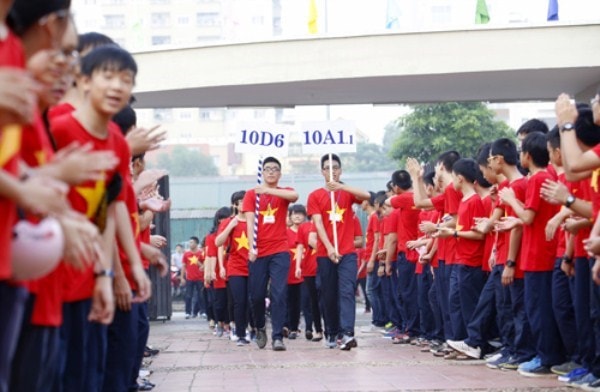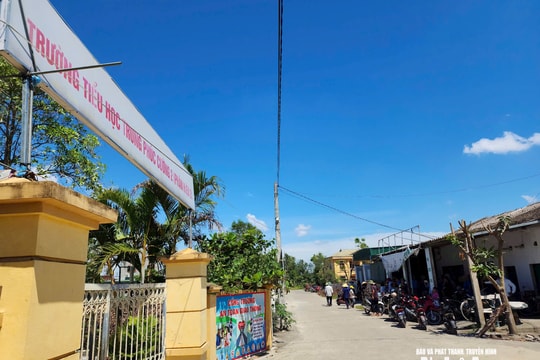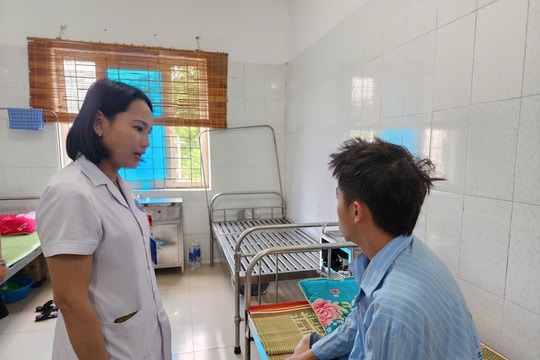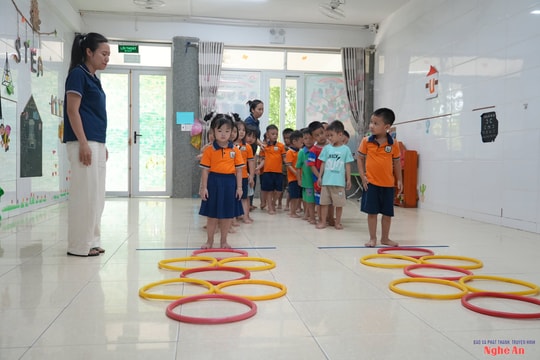School Discipline: Strict or Flexible?
From a parent's "tears in her eyes before she even stops smiling" letter about a private school, in recent days, heated debates on parenting forums have been revolving around whether or not we should apply iron discipline, even harsh methods, to our children?
When the self-criticism is as numerous as butterflies
I myself went through 11 years of high school (old system) and only had a few years when I was cared for by my homeroom teacher. In the other years, I was the owner of a "collection" of self-criticisms, mostly of trivial and small mistakes. There were so many self-criticisms that my mother, who was also a teacher, had to complain, "As a teacher, if you ever torment your students and their parents with self-criticisms like that, you are powerless, and will eventually make them become intolerant of self-criticisms."
After graduating from school for several decades, I met my high school teacher again. I frankly told him that the harsh educational method he used on us was no longer suitable, and “students today will not accept that method…” But he still maintained his old point of view, and said, “If I had not applied it that way, how could you guys be as successful as you are now?”
Hearing that, I understood and felt sorry, because the teacher still could not guide his students to have a happy life, because he still measured success on the scale of social status and the amount of money his students earned.
We have to accept the fact that in the era of the “flat world” and the explosion of media, social networks penetrate every corner, the imposed educational method, to the point of being harsh, is certainly no longer suitable. Whatever the case, if too afraid, unable to share, confide in adults, students can also find sympathy on social networks. But that is more harmful than beneficial, because we adults ourselves are still full of indecision, prejudice and anger, how can we “not yet full, not yet worried” handle it wisely.
On the other hand, harsh and overly formal education can also deprive students of the space to be creative, flexible, to express their opinions, views, personalities, and confidence. While these are very necessary things in today's turbulent world.
Here I remember the case of the “Tiger Mother” who was once very famous and controversial, using harsh educational methods to achieve results, raising “successful” children. From a personal perspective, I do not agree with that way of raising children: life and society are not always about fighting, but there are so many good things to live and to love.
After all, no matter what educational method we choose, what we still want is for our children to be happy: from childhood, living in a family, studying in school.
 |
| Choosing the right education for your children is always a concern for parents. Illustration: Tien Phong |
Between "harsh" and "lax"
However, it must be said that schools must have discipline, and pressure, if applied properly, will become a driving force for children to grow up and develop their full potential. A parent whose child studied at a private primary school once confided to me: "I decided to let my child go to grade 6 and not go to that school anymore, partly because the students there were too undisciplined. I don't know how the school is managed, whether the teachers are often threatened with dismissal or whether it is because of the educational perspective that they are afraid of the students, the students are spoiled and very bad."
Recently, through participating in some educational groups for children, I have realized that each model has its own advantages and disadvantages. Some children are spoiled, born undisciplined, always putting themselves out in the open in a disorganized way. Other children are subjected to a harsh regime, turning into robots and unable to express themselves, not proactive, creative in anything.
Looking back at my son's 5 years of primary school, I realized that in the years when the teacher was gentle, the children were very happy, but often the teacher had difficulty handling serious problems that arose. In the years when the teacher was too strict, it meant that more serious problems arose and because of her rigidity, she did not always handle them properly. Only when the teacher could reasonably combine flexibility and strictness, the overall results of the class would be truly satisfactory.
Like my son’s homeroom teacher, for example. She sees that some children are more active than others, “their essence is expressed outwardly,” so they will show signs of hyperactivity, mischief, and free speech. According to her, in her teaching career, she observed that students like that are more likely to succeed in life later on, especially in careers that require the use of language such as program hosts, reporters, etc. Therefore, she always tries to find ways to deal with them in a balanced and complete way.
That is not easy. Drawing the line between “harsh” and “lax” even for those who are called “educators” or those who open private schools is difficult. Difficult, but one thing we must do for sure is to establish fairness. To build discipline for students, teachers themselves must also follow discipline, be honest, and set an example, otherwise all teachings and regulations will be meaningless.
Establishing fairness is also necessary in every family. Over the past few days, following the debates surrounding the story of private schools, I have been scared when too many parents react to the “education story” by cursing very rudely and one could say vulgar.
I wonder what we expect from our children when we ourselves cannot control ourselves. We certainly do not want to see them be vulgar and rude. It is unfair to expect others to be clean when we ourselves are doing the wrong thing.
According to Vietnamnet
| RELATED NEWS |
|---|



.jpg)
.jpg)



